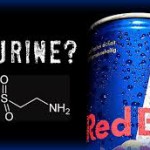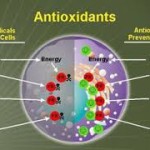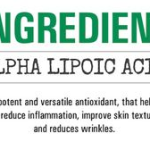Selenium: Antioxidant and Heart Health
Selenium is a mineral which has antioxidant properties that help the body prevent cellular damage from free radicals. Selenium also helps support a strong immune system, regulates thyroid function, plays a role in the prevention of cataracts and heart disease, and may help reduce the risk of prostate and secondary cancers. There has been some contradictory research in terms of the heart and prostate benefits (as well as cognitive benefits), so its hard to know for sure. Some studies support the use of selenium for these purposes, but researchers in Europe have disputed that. (Journal of Nutrition).
The Recommended Dietary Allowance (RDA) for adults is 80-200 mcgs.
You should use an organic form of selenium, such as yeast bound selenium or selenomethionine.
Good dietary sources include: brewer’s yeast, wheat germ, garlic, grains, sunflower seeds, walnuts, raisins, shellfish and freshwater fish and saltwater fish.
It is best to take selenium and vitamin E together as they facilitate each other’s absorption. Avoid taking inorganic forms, such as selenium selenite, which adversely interacts with Vitamin C and other nutrients.
One concern published in the Journal of Nutrition based on European research is that high levels of selenium could raise bad cholesterol levels. We haven’t seen this risk reported widely, so this risk remains unclear, but if supplementing with selenium, have cholesterol monitored regularly to play it safe. More puzzling is the fact that according to other sources, including The University of Maryland Medical Center, “Selenium, combined with other antioxidants, including vitamin E and beta-carotene may help lower LDL (“bad”) cholesterol levels. But selenium can also interact with cholesterol-lowering drugs (See “Possible Interactions”) and make them less effective. If you have or are at risk for heart disease, talk to your doctor before taking selenium.”
The University of Maryland Medical Center publishes some good information about selenium, specifically:
“Selenium is an essential mineral found in small amounts in the body. It works as an antioxidant, especially when combined with vitamin E. Antioxidants like selenium help fight damaging particles in the body known as free radicals. Free radicals can damage cell membranes and DNA, and may contribute to aging and a number of conditions, including heart disease and cancer. Antioxidants can neutralize free radicals and may reduce or even help prevent some of the damage they cause.
Selenium plays a role in thyroid function and your immune system needs selenium to work properly. People with a number of conditions, ranging from rheumatoid arthritis to some types of cancer, often have low levels of selenium. However, in most cases scientists aren’t sure whether low selenium levels are a cause or an effect of the disease.
When researchers examined whether selenium had any effect on skin cancer, they found something unexpected: People who took as little as 200 mcg of selenium per day for more than 7 years had a significantly higher risk of developing type 2 diabetes. More studies are needed to understand exactly what might be happening. In the meantime, you should not take more than the daily recommended allowance of selenium without your doctor’s supervision.
If you are healthy and eat a well-balanced diet, you should get enough selenium. You may have low levels of selenium if you:
- Smoke cigarettes
- Drink alcohol
- Take birth control pills
- Have a condition that prevents your body from absorbing enough selenium such as Crohn’s disease or ulcerative colitis
Heart Disease
The evidence on taking selenium to treat heart disease is mixed. Scientists know that low levels of selenium can contribute to heart failure, and being deficient in selenium seems to make atherosclerosis worse. Atherosclerosis, or hardening of the arteries, happens when plaque builds up in arteries, which can lead to heart attack and stroke. But studies show that taking selenium supplements doesn’t seem to have any effect on the progression of heart disease, nor does it protect against heart attack.
Selenium, combined with other antioxidants, including vitamin E and beta-carotene, may help lower LDL (“bad”) cholesterol levels. But selenium can also interact with cholesterol-lowering drugs (See “Possible Interactions”) and make them less effective. If you have or are at risk for heart disease, talk to your doctor before taking selenium.
Cancer
Studies show that low levels of selenium are associated with a higher risk of cancer death. Scientists aren’t sure how selenium works, but they have observed that people who live in parts of the world where there is a good deal of selenium in the soil and foods have lower rates of cancer. In addition, people who have cancer often have low levels of selenium.
But for most types of cancer, so far studies don’t show that selenium has much effect. One early study looking at whether selenium reduced risk of skin cancer found that although it didn’t seem to affect skin cancer risk, people who took selenium lowered their risk of death from cancer overall. However, later studies found that selenium doesn’t seem to lower the risk of lung or esophageal cancer, and evidence is mixed on whether it protects against colorectal cancer. Two studies suggest that 200 mcg per day might help protect against colorectal cancer, but other studies don’t show any benefit.
The best evidence suggests that, if you have low levels of selenium, getting more selenium in your diet may lower your risk of prostate cancer. Taking a special kind of brewer’s yeast, called selenized yeast, that’s rich in selenium may also help. In one study of 1,312 people, those who took 200 mcg of selenium as selenized yeast per day had two-thirds lower risk of developing prostate cancer during the 4.5-year study compared to those who took a placebo. However, the men who got the benefit had low levels of selenium to start with.
In another study, taking 100 mcg of selenium along with 20 mg of zinc, 120 mg of vitamin C, 30 mg of vitamin E, and 6 mg of beta-carotene each day for about 8 years men who had normal PSA levels at the start of the study had a lower risk of prostate cancer. But men with higher PSA levels didn’t. PSA levels are one possible indicator of prostate cancer.
In another large study, men with normal PSA levels who took 200 mcg of selenium each day for about 5.5 years didn’t have a lower risk of prostate cancer than those who took placebo.
If you are at risk for prostate cancer, talk to your doctor before taking selenium.
The situation is complicated when it comes to skin cancer. Some early evidence led scientists to investigate whether selenium might protect against skin cancer. But a large trial found that taking daily selenium supplements actually increased the risk of squamous cell carcinoma and nonmelanoma skin cancer.
Immune Function
Many studies suggest that the body needs selenium in order for the immune system to work properly. Selenium, along with other minerals, can help build up white blood cells, which boosts the body’s ability to fight illness and infection. A few studies suggest that selenium might help prevent some infections, such as a bacterial skin infection that often occurs with lymphedema, and mycoplasma pneumonia. In addition, one study suggested that when elderly people took zinc and selenium supplements, their immune systems responded better to the flu vaccine than those who took placebo.
Asthma
Evidence suggests that people with asthma tend to have low blood levels of selenium. In a study of 24 people with asthma, those who took selenium supplements for 14 weeks had fewer symptoms compared to those who took placebo. But in a larger randomized, double-blind, placebo-controlled study, people who took a yeast supplement that contained selenium didn’t have any fewer symptoms than those who took placebo. More studies are needed.
Rheumatoid Arthritis (RA)
Low levels of selenium in the blood may be associated with increased risk of RA. But it doesn’t seem that selenium supplements help once you have RA.
As a supplement: Some studies have used 200 mcg per day for some conditions, but evidence suggests that taking that amount over a long time could increase your risk of developing diabetes. Talk to your doctor before taking more than the recommended daily allowance.
Precautions
Because of the potential for side effects and interactions with medications, you should take dietary supplements only under the supervision of a knowledgeable health care provider.
Talk to your doctor before taking more than the recommended daily allowance of selenium. Although some studies have used doses of 200 mcg, there is some evidence that this amount could increase your risk for diabetes. Do not exceed the tolerable upper limit of 400 mcg. Remember that you may also get some selenium in the foods you eat.
Over time, high doses of selenium can be toxic. Side effects include fingernail loss, skin rash, fatigue, irritability, and weight loss.
People who have an underactive thyroid (hypothyroidism) or have had, or are at risk for, skin cancer should not take selenium without talking to their doctor.
High selenium intake may increase the risk of diabetes and high cholesterol.
Possible Interactions
If you are being treated with any of the following medications, you should not use selenium supplements without first talking to your health care provider.
Drugs that affect selenium levels in the body — These drugs may lower levels of selenium:
- Cisplatin, a chemotherapy drug
- Clozapine (Clozaril)
- Corticosteroids, such as prednisone
- Valproic acid (Depakote)
Anticoagulants and antiplatelet drugs (blood thinners) — When taken with these drugs, selenium may increase the risk of bleeding:
- Clopidogrel (Plavix)
- Warfarin (Coumadin)
- Heparin
- Aspirin
Chemotherapy — Although selenium may help reduce side effects from drugs such as cisplatin, doxorubicin, and belomycin, it may also interfere with their cancer-fighting ability. If you are undergoing chemotherapy, talk to your oncologist before taking selenium or any other supplement.
Cholesterol-lowering medications — Simvastatin (Zocor) and niacin have been shown to lower LDL (“bad”) cholesterol and raise HDL (“good”) cholesterol in people with heart disease. Taking antioxidants, including selenium, along with these drugs may make them less effective. Theoretically, selenium may also reduce the effectiveness of other statins, including atorvastatin (Lipitor), fluvastatin (Lescol), lovastatin (Mevacor), and prevastatin (Pravachol).







Leave a Reply